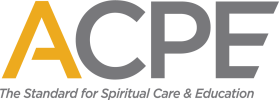Advancing through the CEC process is more than collecting evidence for each of the competencies. Understanding the conceptual framework for the three levels, Admissions, Phase 1 and Phase 2 will enhance the CEC’s ability to address the competencies and for reviewers to understand how they are assessing achievement. This framework allows for a clear progression of the competencies from Admissions to Phase 1 to Phase 2. It allows for consistency of phraseology both within each phase and within each competency across phases. While learning is not linear, having greater clarity in both the specific competencies and the phases of the CEC process is essential to growth and development in this process.
Conceptual Framework
Brief Description:
- Admissions – (a) Demonstrates excellence as a spiritual care provider and (b) Shows potential as a CPE Educator.
- Phase 1 – Demonstrates competence as a CPE Educator.
- Phase 2 – Demonstrates the ability to self-evaluate and to be integrated as a CPE Educator.
Explanation:
Admissions – (a) Demonstrates excellence as a spiritual care provider; and (b) Shows potential as a CPE Educator.
The Aspirant who meets the competencies for Admissions and moves to Phase 1 must demonstrate two distinct achievements. The first is that they must show that they are an advanced spiritual care provider. The individual (or CES) is one who might be board certified and/or one who demonstrated competency with the Level IIB Outcomes, which focuses on self-evaluation of their spiritual care practice. Most of the Admissions competencies seek to determine if the Aspirant is a good spiritual care provider. While Admissions is not the same as the board certification process, there is enough overlap that the materials used for board certification and Level IIB can sometimes be used as evidence addressing the CEC Admissions competencies. This makes for a more seamless, integrated process when students move from Level I/II CPE into the CEC process.
The second area being assessed during Admissions is whether the Aspirant has the potential to be an educator. Assessing an Aspirant’s potential to be a CE can be evidenced through the demonstration of competencies such as: their motivation to do this work, their reflections on their own CPE journey and how well they utilized the CPE process, and their recorded didactic presentation.
Phase 1 – Demonstrates competence as a CPE Educator.
A CEC meets Phase 1 Competencies by demonstrating their competence as a CPE educator. Phase 1 provides a space of growth and development through progressive autonomy. It begins with Phase 1A where the CEC observes, assists, and begins to take leadership in CPE education under the live and in-person presence of an ACPE Certified Educator. Phase 1B allows for greater autonomy for the CEC as their Training Educator provides direct education and supervision of their CPE education by being physically present or watching recorded sessions of the CEC’s CPE education with Level I/II students. Phase 1B also includes the Theory Integration Project and Presentation, which focuses on their congruence and integration of theories into their educational practice. Following the completion of the Theory Integration Project, the CEC will address the Phase 1 Competencies to demonstrate their competency as a CPE educator.
By the end of Phase 1, the CEC has been educating competently for a period of time. Phase 1 Competencies seek to determine that the candidate has achieved and demonstrated competency in their work as an educator. Examples of their competence are expected to be drawn from group and individual supervision, their work with their Training Educator and consortium, providing fresh vignettes not used in their Theory Integration Project. When a CEC has achieved Phase 1 Competencies, it is expected that their demonstrated competencies show evidence of a competent educator, albeit new and still learning.
Phase 2 – Demonstrates the ability to self-evaluate and to be integrated as a CPE Educator.
The candidate who in Phase 2 is conducting independent education under supervision. This phase looks to the next level, namely self-evaluation, self-supervision and ongoing use of consultation. By achieving Phase 2 Competencies, the CEC has shown themselves to be not only a competent educator, but also is further integrated and self-evaluative. The Phase 2 Competencies will repeatedly ask the CEC to reflect on how their CPE education and supervision have evolved since Phase 1 and where their successes and challenges are. They will be asked how they navigate these challenges and how they might address their continued growth in these areas. Phase 2 candidates are nearly finished with their CEC process and upon meeting the Phase 2 Competencies, their Phase 2 interview is functionally their first peer review.


